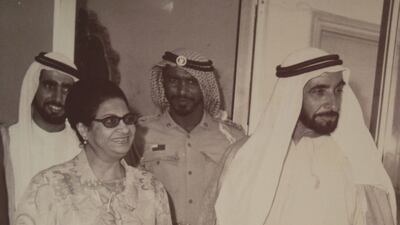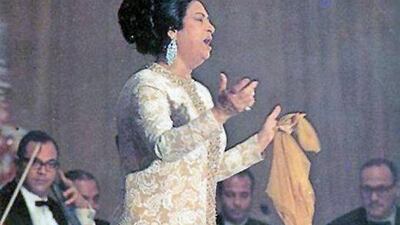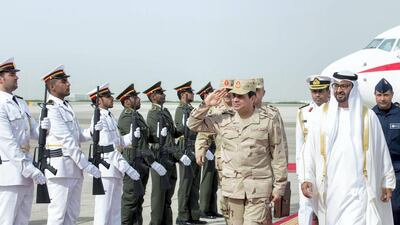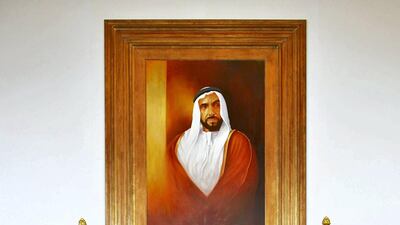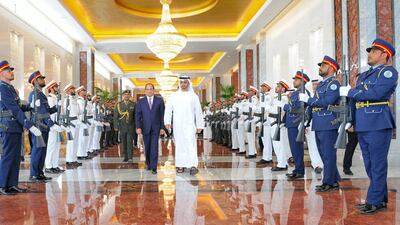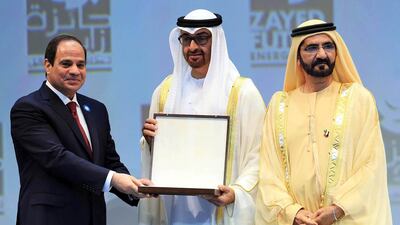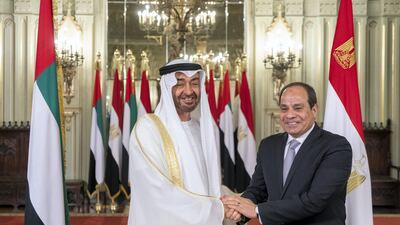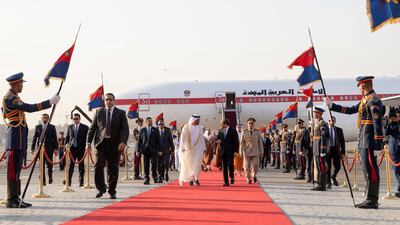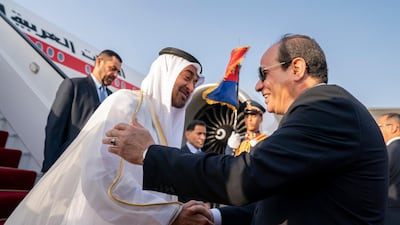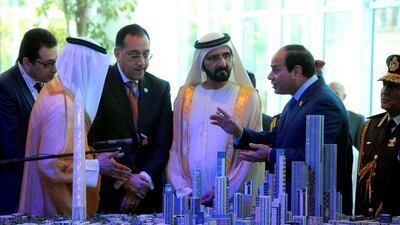The bonds of friendship between Egypt and the UAE go back to the Emirates' foundation. In fact, they predate it.
It was Umm Kulthum, the most famous singer the Arab world has ever produced, who flew to Abu Dhabi from Cairo just a few days before the seven emirates become a nation on December 2, 1971, for a series of landmark concerts in the capital.
As a token of his appreciation, Sheikh Zayed, the new President, presented the woman known as Kawkab Al Sharq, or “Star of the East”, with a fabulous antique necklace of Arabian Gulf pearls.
Just a few days later, as the UAE was officially admitted to the UN in New York, Egypt was among the first countries to recognise the world’s newest nation.
“The government of the Arab Republic of Egypt is certain that the new Arab brotherly nation will contribute to the march of the Arab nation towards its welfare, dignity and prosperity,” Cairo said at the time.
The warmth of that relationship between one of the oldest and one of the newest Arab countries has been reciprocated many times.
Sheikh Zayed met then Egyptian president Anwar Sadat in Cairo in 1970, and again in 1971.
He strongly supported Egypt in the 1967 war with Israel and again in 1973, when Sheikh Zayed called Sadat to advise that all of the UAE’s resources had been placed at his disposal.
That year, the UAE President received a rapturous reception on another visit to Cairo for the inauguration of a suburb of Ismailia, a city on the Suez Canal badly damaged by conflict.
To be built with UAE support, it was named after Sheikh Zayed, as was Sheikh Zayed City, on the outskirts of Cairo, where building began in 1995.
In 1976, Sadat flew to Abu Dhabi seeking financial aid, with the UAE also helping to broker an end to Egypt’s isolation in parts of the Arab world as a result of its negotiations with Israel that would lead to the 1979 Camp David accords.
Formal support from the Abu Dhabi Fund for Development began in 1974. It noted in its most recent report that Egypt received Dh4 billion in loans and grants from the fund or managed on behalf of the UAE Government, for 20 projects, with an emphasis on agriculture.
By 2009, Cairo had ranked the UAE as the leading foreign government investing in Egypt, after President Sheikh Khalifa sent a million tonnes of wheat in 2008 as gift to relieve rising food prices.
The decision by Egyptian president Hosni Mubarak to step down due to popular pressure in 2011 was supported by the UAE, and after a period of turmoil, the country is continuing to give political and economic support to the current President, Abdel Fattah El Sisi.
Relations between the UAE and Egypt have continued to strengthen under Mr El Sisi, with borth sharing concern and action over key issues in the region, including the diplomatic isolation of Qatar over its support for terrorism, the threat from extremist groups such as ISIS and Iran’s interference.
During talks in Cairo in 2016, Sheikh Mohamed bin Zayed, Crown Prince of Abu Dhabi and Deputy Supreme Commander of the Armed Forces, described Egypt’s “pivotal role”.
In the past year, Sheikh Mohamed has paid several visits to Egypt. In March, the Crown Prince embarked on a two-day state visit when he toured the resort city of New Alamein, one of a series of mega projects to boost economic development.
During another official visit in May, Sheikh Mohamed summarised what is now nearly a half-century of friendship and co-operation.
“It is a relationship that is evolving, deeply grounded in history and serves the interest of the two countries and their people,” he said.
